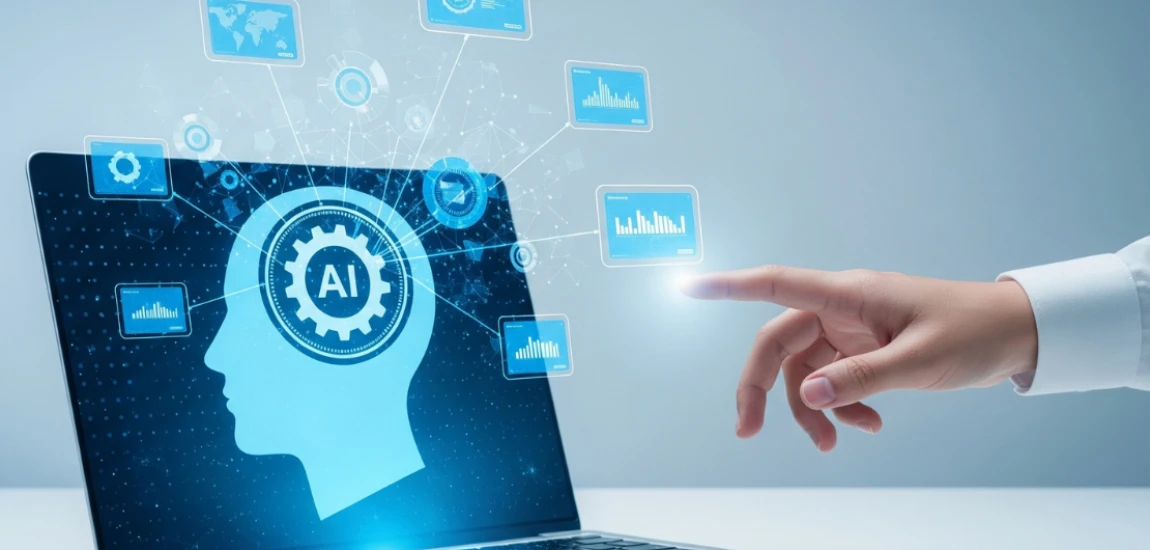How Agentic AI Is Reshaping Hollywood: From Autonomous Editing to Content Localization

Hollywood has always been a place where storytelling meets technology. From the advent of sound in the 1920s to the rise of computer-generated imagery (CGI) in the 1990s, every new tool has changed the way stories are told. Today, another seismic shift is underway: the rise of agentic AI. Unlike traditional AI tools that perform isolated tasks, agentic AI systems can act autonomously, make creative decisions, and adapt to complex workflows without human micromanagement. This difference is reshaping Hollywood’s approach to content creation, editing, and even distribution.
But what does it mean in practical terms? It means that filmmakers can now rely on AI to handle entire stages of production—from autonomous editing suites that cut film reels overnight to AI-driven localization engines that adapt scripts, lip-sync, and cultural cues for global audiences. Agentic AI doesn’t just save time; it changes how films are conceived, marketed, and consumed.
This blog explores the many ways agentic AI is reshaping Hollywood, breaking down its applications across the production pipeline and asking what the future of entertainment might look like when technology itself becomes a creative partner.
The Rise of Agentic AI in Entertainment

From Narrow AI to Agentic AI
Traditional AI in Hollywood has typically been task-oriented—think facial recognition, green-screen replacement, or auto-tagging content libraries. Agentic AI, however, represents a shift toward autonomy and adaptability, enabling systems to handle multiple, interconnected creative tasks without explicit instructions for each step.
Why Hollywood Is Paying Attention
Studios and streaming platforms face immense pressure: rising production costs, shorter content cycles, and global audiences with diverse tastes. Agentic AI addresses these challenges by acting as a co-creator and production assistant rolled into one, making workflows faster and more cost-efficient.
Industry Momentum
Major players like Netflix, Disney, and Warner Bros. are already experimenting with AI-driven tools for script analysis, editing, and international dubbing. This adoption is not speculative—it’s happening now, with pilot projects moving into full-scale deployment.
Autonomous Editing: Cutting Films at Machine Speed

How AI Editing Suites Work
Autonomous editing powered by agentic AI can scan through terabytes of raw footage, identify key plot beats, and assemble draft cuts based on script notes and emotional pacing. Unlike rule-based systems, agentic AI adapts, learns from director feedback, and improves with each iteration.
Benefits for Filmmakers
Time Savings: What once took weeks can now be achieved in days or even hours.
Multiple Versions: AI can create alternate cuts tailored for theatrical release, streaming, or social media trailers.
Reduced Costs: Cutting down on editing hours significantly reduces production expenses.
Creative Collaboration
Rather than replacing human editors, AI functions as a creative collaborator, providing rough drafts that editors refine. This symbiosis allows artists to focus on higher-level storytelling instead of mechanical tasks.
Content Localization: Reaching Global Audiences Seamlessly

Beyond Subtitles and Dubbing
Localization is more than translating dialogue. Agentic AI can recreate actor lip movements in multiple languages, adjust cultural references, and ensure jokes or idioms land effectively with international audiences.
The Netflix Effect
Global streaming platforms demand localized content at scale. Agentic AI enables studios to release shows simultaneously in dozens of languages with near-perfect synchronization.
Future of Global Distribution
In the future, viewers might even choose voice preferences, accents, or localized cultural overlays while watching a film—making Hollywood content feel truly personal worldwide.
Personalized Storytelling: Choose-Your-Own-Hollywood

Adaptive Narratives
Agentic AI can create dynamic storylines that adapt to audience preferences. Imagine a movie where the tone shifts based on whether you prefer action, romance, or mystery.
Gamification of Films
This isn’t just science fiction. Interactive films like Bandersnatch hinted at this model, but agentic AI can scale it—creating endless narrative branches in real time.
Implications for Filmmakers
Filmmakers may start designing films not as fixed products but as narrative ecosystems where audiences co-create the experience.
Scriptwriting and Pre-Production AI

Script Analysis
Agentic AI can break down screenplays into budget projections, character arcs, and scene efficiencies, helping producers plan more effectively.
Automated Storyboarding
Tools now generate visual storyboards directly from scripts, complete with camera angles and lighting suggestions.
Pitching with AI
Writers can use agentic AI to create AI-generated teaser trailers or concept art alongside scripts, giving studios a better sense of the vision before greenlighting a project.
Marketing and Trailer Creation with Agentic AI

Trailer Editing
Studios already use AI to assemble trailers that appeal to specific demographics. Agentic AI takes this further by autonomously testing dozens of trailer versions in real time.
Predictive Analytics
By analyzing social media buzz, agentic AI predicts which scenes, themes, or characters will resonate most with audiences.
Hyper-Personalized Ads
Imagine opening YouTube and seeing a movie trailer tailored to your personal interests—different music, pacing, or even character focus depending on your profile.
Visual Effects and CGI Reinvented

Faster VFX Workflows
Agentic AI can auto-generate background environments, crowd scenes, or even de-age actors in minutes.
Cost Efficiency
High-quality CGI that once required massive budgets can now be created with smaller teams, democratizing visual effects for indie filmmakers.
Artistic Implications
The democratization of VFX may lead to a surge in independent science fiction and fantasy films, no longer limited by production costs.
Ethical Dilemmas and Creative Concerns

Who Owns the Art?
If an AI generates 60% of a film, who gets credit—the director, the studio, or the AI developers?
Deepfakes and Authenticity
Agentic AI raises concerns around actor likeness rights and the potential for misuse in generating fake content.
Striking a Balance
Hollywood must balance innovation with ethics, ensuring that technology enhances creativity rather than undermines it.
The Impact on Jobs in Hollywood

Redefining Roles
While some fear job losses, many roles are simply shifting in focus—editors, translators, and VFX artists now become AI supervisors and creative directors.
New Opportunities
AI specialists, prompt engineers, and ethics consultants are becoming as essential as cinematographers and screenwriters.
Union Concerns
Ongoing debates with organizations like the Writers Guild of America (WGA) highlight the need for clear labor protections as AI becomes embedded in the industry.
The Future of Hollywood with Agentic AI

AI as Co-Creator
We’re moving toward a future where AI isn’t just a tool—it’s a collaborator, shaping films in ways we can’t yet fully predict.
Audience-Centric Cinema
Films may become living, evolving products that adapt in real-time to audience reactions, blurring the line between cinema and interactive entertainment.
Globalized Storytelling
Agentic AI ensures that Hollywood content isn’t just exported but truly localized, allowing diverse audiences to connect with films on their own terms.




